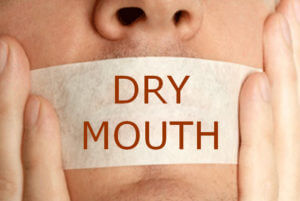Dry Mouth
Jul. 18, 2017
One of the most common CPAP side effects is dry mouth. In this blog I am going to focus on causes and solutions for dry mouth.
Small leaks or short leak spikes for brief periods of time are common in CPAP users, and they are not a big issue. A mask leak rate over 24L/min for a long period of time, or air leaks from mouth breathing are enough to impact your therapy and also cause severe dry mouth. Keep in mind the side effect of many medications is also dry mouth. So if there has been a change in your medication and suddenly you are experiencing dry mouth, you need to talk to your physician or pharmacist.
In general when you sleep with your mouth open, the pressurized air from CPAP enters in the open mouth and causing the unpleasant feeling of drying in mouth. However if only your throat is dry, not your mouth, it could be due to low humidity level.
To eliminate dry mouth, find the cause of it first. For example if you are mouth breathing, it could be because something is blocking your nose, like a deviated septum or nasal congestion. For people who have a deviated septum and can’t breathe through their nostrils, a full face mask or using a chin strap along with nasal mask could resolve it. If you have sinusitis or nasal congestion, increasing the humidity level or using nasal decongestants would help.
Some people still experience dry mouth, despite using a full face mask and using higher humidity level, in this case keep yourself hydrated keeping a glass of water by the bedside is a good idea. It’s good practice to take a few sips of water in the middle of the night, avoid drinking large amounts of water, it may disturb your sleep from bladder tension. You could also look into dry mouth medications. For example Biotene is a common medication that helps with dry mouth, which comes in as a mouth spray, but the gel is the most effective.
If you are experiencing dry mouth, contact your therapist at Cansleep to start looking into the cause of it and troubleshooting it.
By Bahareh Ezzati (BSc, CPhT, RRT)






